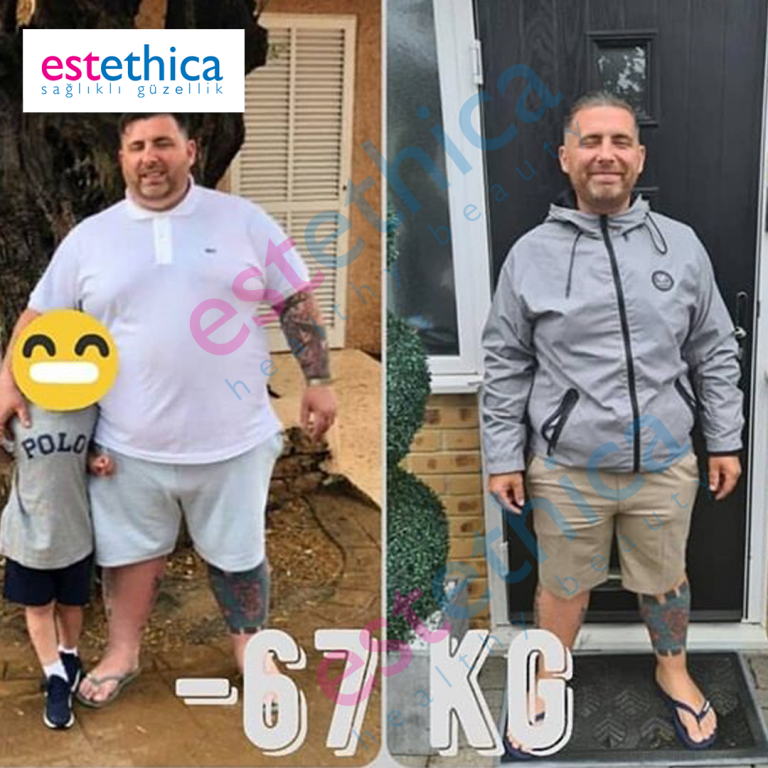Sleeve gastrectomy or tube stomach surgery
at estethica Istanbul
What is obesity? Why is it necessary to treat it?
Obesity is a growing health problem worldwide. The World Health Organization defines it as “the accumulation of fat at a level that affects the health of the body in a bad way”, indicating that the consumed energies are so great that the energy balance in the body deteriorates and the body weight increases in volume, causing deterioration of health. Obesity is when the percentage of body fat exceeds 30% in adult women and 25% in adult men. Obesity is not just a problem in itself. Rather, it is one of the most important factors causing various dangerous diseases such as heart disease, diabetes, kidney disease, respiratory and joint diseases and sudden paralysis. Obesity is a chronic disease that negatively affects lifestyle and results in death.

How often is obesity seen?
According to WHO data, about 3.2 billion people are overweight and 700 million are obese in the world. Overweight and obesity are responsible for 80% of diabetes, 35% of heart disease and 55% of high blood pressure in adults in Europe and cause more than 1 billion deaths each year. At present, it is known that at least 150 million adults in Europe are obese.

How is obesity treated?
Obesity is a condition that affects many of the body’s organs. It is for this reason that treatment
needs to be planned and carried out with a “multidisciplinary”approach where different branches
work together in step with each other.
These methods are used in obesity treatment:
- Medical nutritional (diet) therapy
- Drug Treatment
- Endoscopic treatments
- Gastric balloon
- Laparoscopic Procedure
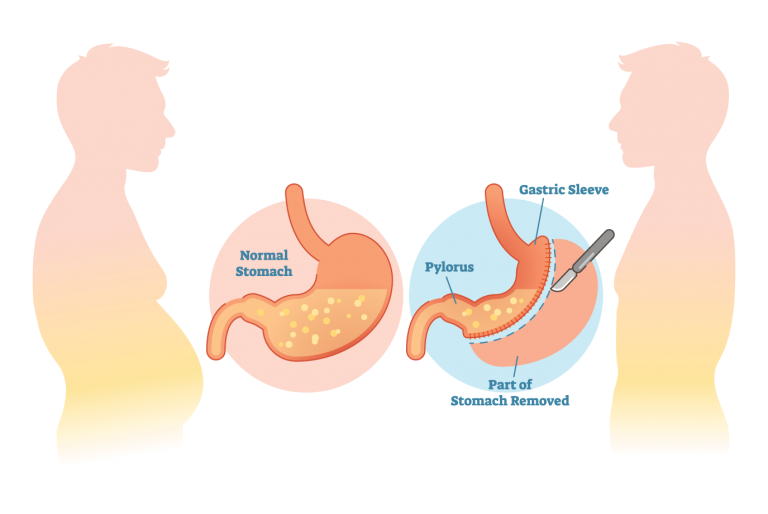
Who can undergo an obesity operation?
Closed obesity operations are effective treatment methods that have been used recently in both Turkey and abroad. According to international criteria, obesity operations are recommended for all patients whose body mass index (BMI)* is over 32.25 and have another serious condition (diabetes, hypertension, cardiovascular disease, sleep apnea, joint disease) or who has a BMI of 40 and above.
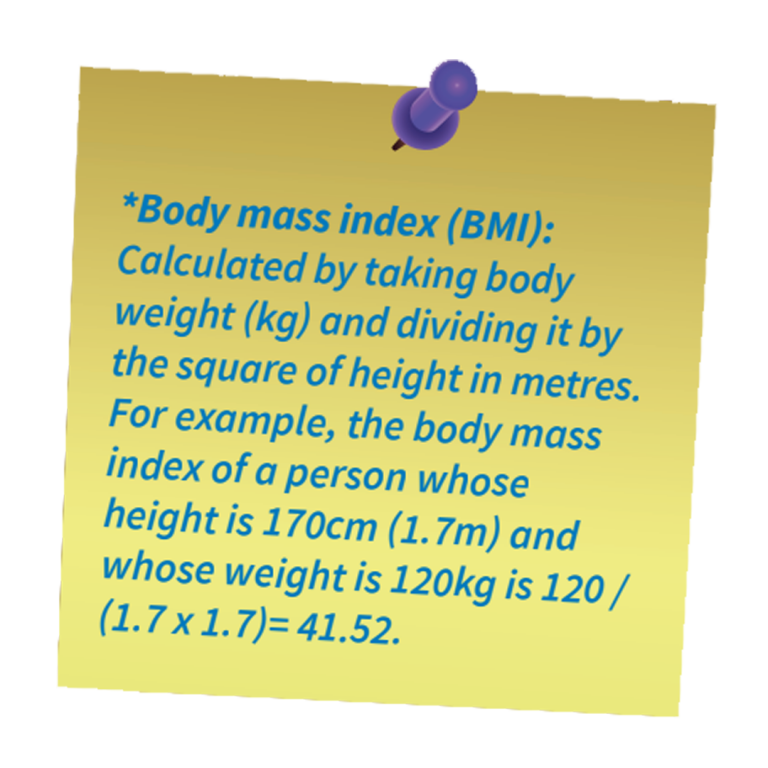
What is the most commonly performed sleeve gastrectomy?
The sleeve gastrectomy operation is a surgical procedure with a low risk of complications (unwanted developments post-operation) and few side-effects. During the sleeve gastrectomy operation, which is also known as a stomach reduction operation, a large portion of the stomach is cut away and a stomach in the shape of a tube with a volume of 60-120 ml (1 teacup). As a large portion of the stomach that secretes the hunger hormone is removed and its volume is reduced, appetite is lowered, it is more quickly filled and weight can be lost.
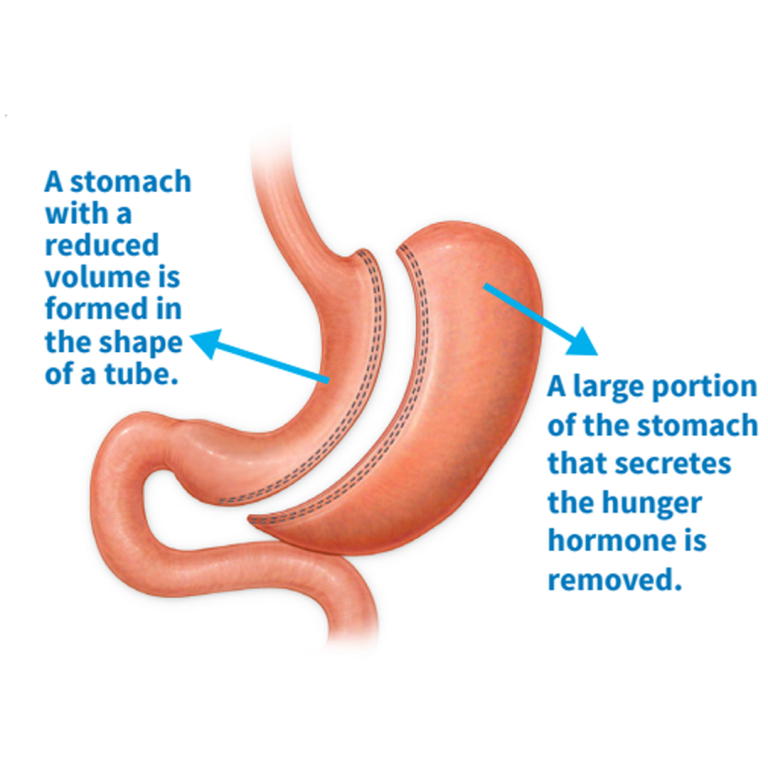
Sleeve gastrectomy operations performed by one of Turkey's most experienced medical teams with over 4000 operations under its belt have significant advantages:
- Our patients lose weight over a year, 40% of which will be permanent
- Important improvements in other obesity-linked illnesses have also been observed in our patients
- Post-operation leakage rates have been reduced to around 1% and the death rate has been reduced to the same rate as for gall bladder operations with our high-technology devices known as ‘tri-staplers’ manufactured in America
- After the operation, your expert medical team can be contacted 24/7 to answer all your questions and our team will regulate your treatment and carry out follow-ups
What are the advantages of sleeve gastrectomy operations?
- Stomach functions are not disrupted even though it is smaller in volume. Everything can be eaten, but small portions fill you up
- The area of the stomach that secretes the hunger hormone is removed. The reduction of the hunger hormone is an important factor in making sure hunger isn’t felt for long and in ensuring weight-loss is permanent
- As the muscle located at the exit of the stomach is not touched and is actively used, nausea, vomiting, throbbing or fainting are not caused
- The formation of ulcers is almost never seen
- Malabsorption is not caused because the small intestine is not touched. Blocked or injured intestines, anaemia, vitamin and mineral deficiencies, osteoporosis, malnutrition and diarrhoea are not observed after sleeve gastrectomy operations. Sleeve gastrectomy perations are the first choice for patients who don’t want the encumbrance brought about by operations that lead to absorption problems caused by removing a portion of the small intestine. Don’t require the life-long or long-term use of medicines
- It is the first treatment option for patients who are extremely overweight (BMI>50 kg/m2)
- It is the most preferred option as the main treatment option for people who are below the threshold for being excessively overweight (BMI 30-50 kg/m2)
- It is the first option in cases where the liver has become extremely fatty
- As it can be performed quickly and easily via a laparoscopy, it confers the advantages of a shorter operation time and quick recovery for patients who have serious heart and lung problems due to being extremely overweight
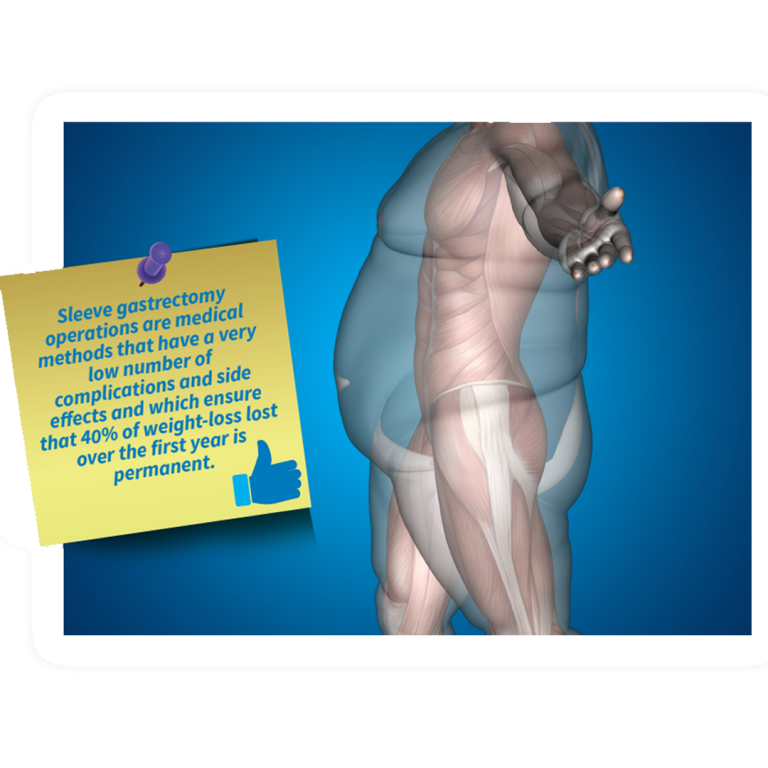
Recovery period
- You can begin to eat normally after 3 weeks. You won’t have to use medicines for a long time after the operation
- You will be able to go on short walks 4 hours after the operation
- You have to stay in hospital for two days after the operation
- You will be called in for a check-up 1 week after being released from hospital. The purpose of this check-up is to observe that the body is healing itself without any issues
- You can travel 1 week after being released from hospital
- You can actively do sports (like pilates, swimming, bodybuilding) 6 months after the operation
Before and After









